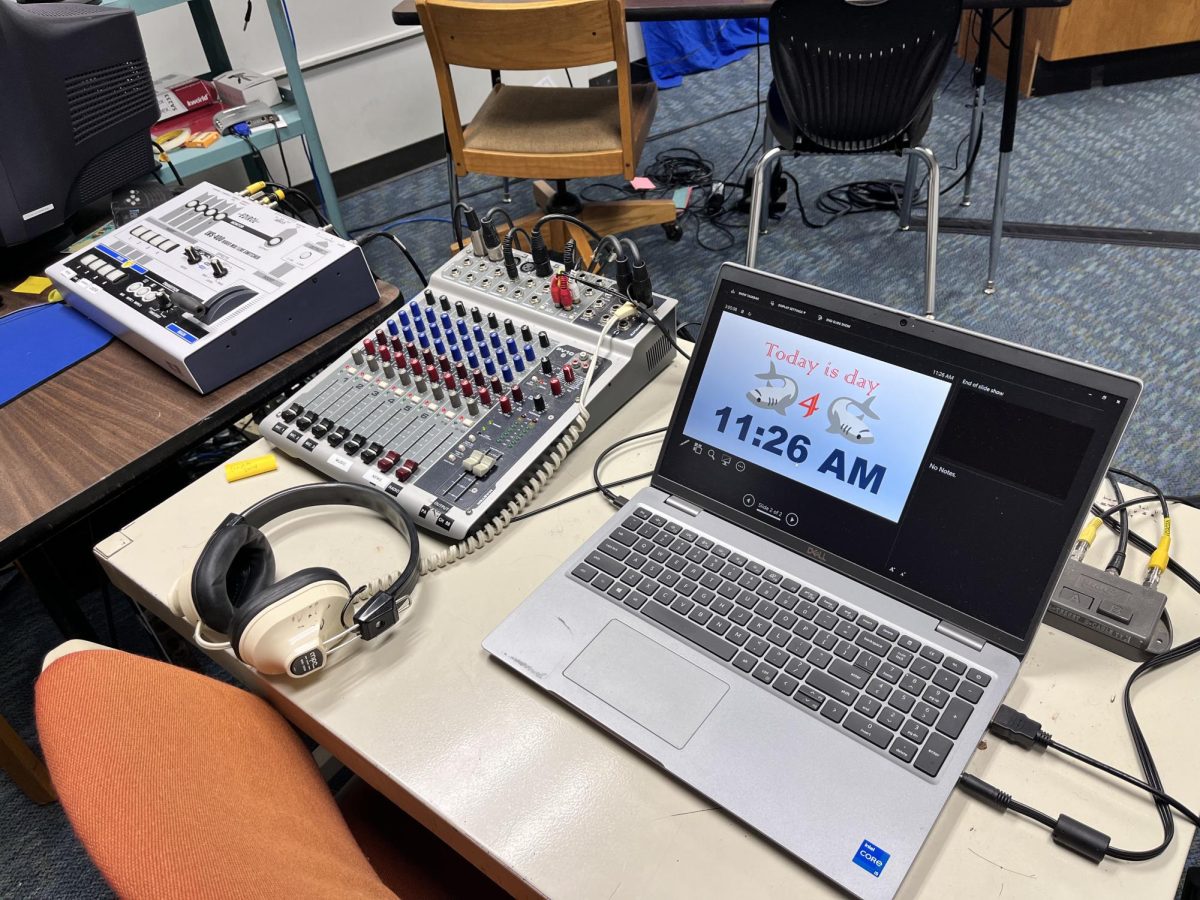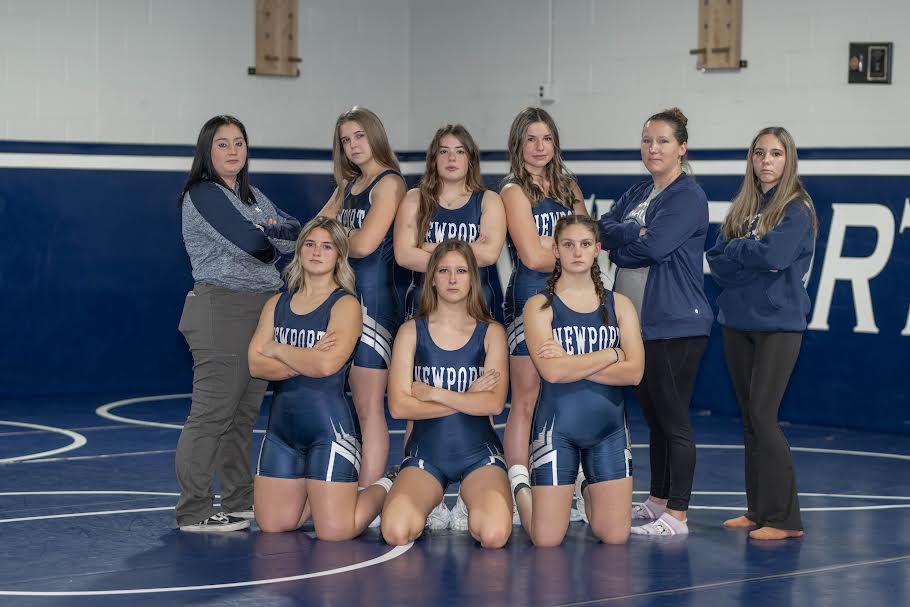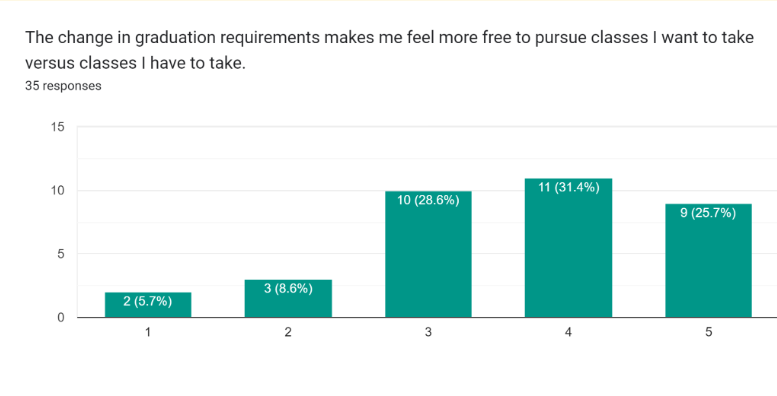If a student wants to graduate, they have to meet the graduation requirements, and, with few exceptions, the graduation requirements that most students are held to is completed credits. These requirements have received significant changes this year that will impact the classes students have to and choose to take.
The school board introduced the new graduation requirements policy in the June board meeting on June 6, 2023, where they placed the policy under a standard thirty-day review period. The changes decrease the number of necessary credits in the core subject areas as well as in the elective subject areas. During the August board meeting on Aug. 8, 2023, the board adopted the policy.
A day before the June meeting, the counseling office updated the Sapphire website in anticipation of the changes, so parents and students alike were able to view and gain perspective on the updates to credit requirements.
Specifically, the policy lowers the required credits in three of the core subject areas, math, science, and social studies. In the new policy, each of these subjects require only three credits, as opposed to four. English, the fourth core subject area, still requires four credits. The former Business and Technology category, which requires two credits, has been renamed the Arts and Humanities category to encompass various other classes including music and foreign language courses. The Health and PE category, which also requires two credits, remains unchanged. Only five extra elective credits are now required, reduced from six.
The policy lowers the overall credit requirements from 26 to 22. However, to gradually adjust classes to the change, the graduating class of 2024 needs 24 credits and the graduating class of 2025 will need 23 credits. The class of 2026 will be the first class to fully experience the new graduation requirements.
The purpose of this change, according to the counseling office, is to free students from having to take classes unrelated to their careers and allow them to take more relevant classes. Presumably, should a student wish to take a particular class that would benefit them in their chosen career path, they would now have more freedom and flexibility.
High school counselor Mrs. Katerina Grigoryan explains, “One of the big things I think kids struggle with in high school is finding value and relevance in education, and by making these changes I feel we can allow kids to take classes that are more relevant and beneficial to their careers.”
Generally, students align with this interpretation of the changes. An anonymous student poll regarding graduation requirements that received 36 responses showed that the majority of students believe the changes in graduation requirements give them more freedom to pursue classes they are interested in and that better suit their potential future careers (see figures 1.1 and 1.2 at bottom of page).
Teachers, on the other hand, do not as readily see this benefit. In an anonymous teacher poll that received 11 responses, the teachers showed mild disagreement with both the idea that the new graduation requirements allow students to pursue classes more relevant to their career or classes more beneficial to them (see figures 2.1 and 2.2).
It is not guaranteed that the changes in graduation requirements will have any significant effect on the classes students choose to take. The majority of respondents in the student poll claimed that they would still take four credits of math, science, and social studies, the majority citing that they will still want to take those subjects and the minority saying that they are valuable schedule-fillers (see figure 1.3).
Similarly, it is not guaranteed that the changes will have the desired effect. Of the students who said that they no longer expected to take four credits of math, science, or social studies, almost half explained that they would not because they simply were no longer required to. (see figure 1.3) The teachers in the teacher poll, meanwhile, echoed this sentiment. The vast majority, almost 75% in both cases, claimed that students would not take four credits of math, science, or social studies merely because it is no longer required, and that they would not take more than the required amount of elective credits (see figures 2.3 and 2.4).
Conversely, and almost in direct contrast to the prior question in the student poll, the majority of students expect to take more elective classes for the benefit they will have in their career or for their interest in them (see figure 1.4).
Ultimately, these conflicting perspectives, especially from such a slim number of respondents, reveal that it is difficult to determine what the outcome of the changes in graduation requirements will be. Mr. Scott McGrady, director of curriculum, instruction, and assessment in the Newport School District, is confident in the changes and supports their implementation. “Personally, I am excited to see the opportunities and flexibility this change provides in personalizing the educational experience for Newport students,” he says. “I believe this change allows for students to pursue coursework and experiences that will match their individual interests and build the knowledge and skills necessary to be more successful as they pursue future goals…”
The change in graduation requirements also comes with a more nuanced aspect: the lowering of credit requirements could consequently lower the competitive standard of Newport High School. One anonymous teacher respondent explains, “If we only decrease the credits required, most students will only take the bare minimum. We need to also require students to have a reasonable number of classes for college-bound students their senior year, or we’re simply providing a lower-quality education.”
On the other hand, Mrs. Grigoryan claims, “…for students that are college bound, being told you have to take an extra class won’t affect what you take…One of the big conversations I have with students going into senior year is what math class they should take. I feel there are particular classes that you should take depending on what you plan to major in. The main shift is [supposed to be] from a focus on not meeting the bare minimum to ‘What do I need to be successful after high school?’”
The deciding factor for if the lowering of graduation credit requirements will be successful lies with the students, though this responsibility may be misplaced. The goal, according to the counseling office, is to shift students’ focus from “checking boxes” to attaining the education they need and want in order to set up their future. This goal will not be met, regardless of how the school board caters it, if the students do not personally define their future and base their education around it.
However, no high school student is expected to have their future figured out. According to the U.S. Department of Education, 30% of undergraduate college students in either bachelor’s or associate’s programs with declared majors change their majors at least one time. 10% change their major more than once.
If so many students are unable to plan for their future while in college, they are not likely to reliably organize their schedules around it in high school. Changing the graduation requirements puts faith in the students to organize their schedules according to plans and interests that are not properly developed. Freedom for things like scheduling classes is valuable, but not when the expectation for those receiving it is unrealistic.
The school board, by making this change, assumes some level of responsibility in the students to uphold the standards of Newport High School education and use this freedom to its fullest potential. The critique of many teachers would be that students should not be expected to know what is best for themselves. The position of the counseling office, and the school board, is that the students deserve to have more of a say in what is best for themselves.






























